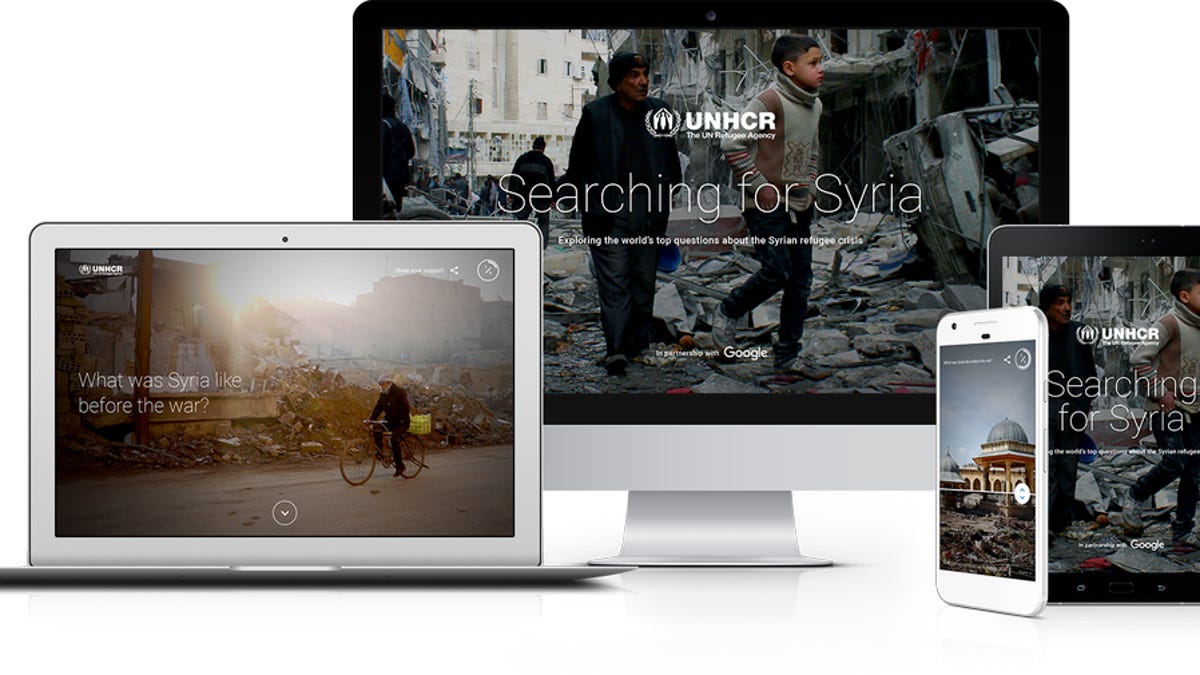Google's interactive hub explains Syrian refugee crisis
"Searching for Syria" answers five of the most common search queries about the war that has devastated the country.

Google.org has invested $20 million in grants to support refugees since 2015.
Googling "Syria"? The UN refugee agency has teamed up with Google to create a website that answers your questions.
Launched on Monday, the interactive website answers the five most common search queries about Syria and its refugee crisis. In 2016, people searched for information about the crisis tens of millions of times, according to Google.
"Searching for Syria" tackles questions such as "What is going on in Syria?" and "What was Syria like before the war?" The answers combine data from the United Nations High Commissioner for Refugees (UNHCR) with Google Maps, satellite imagery, videos, photography and stories from refugees to show both the scale of the war and the human suffering.
As fake news continues to plague the internet, Google said the "Searching for Syria" project is designed to help inform people who are looking for a trustworthy source of information.
"Sharing these trends, based on UNHCR's verified data, will ensure that people searching to better understand one of the most terrible events of the last six years will be able to do just that," Google said in a blog post.
Life, disrupted: In Europe, millions of refugees are still searching for a safe place to settle. Tech should be part of the solution. But is it?

